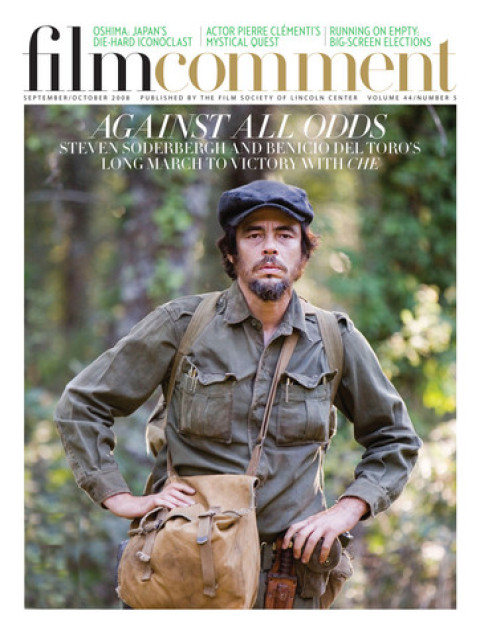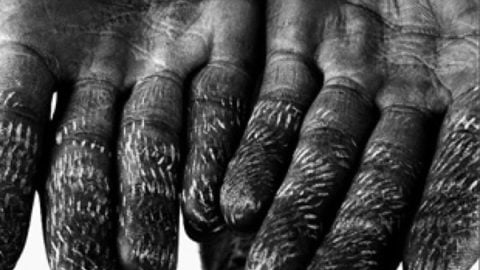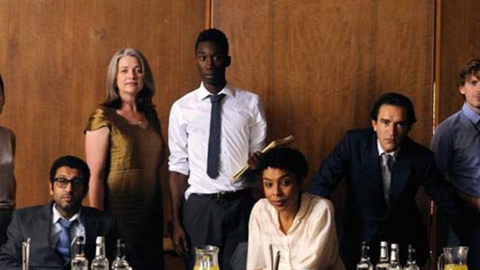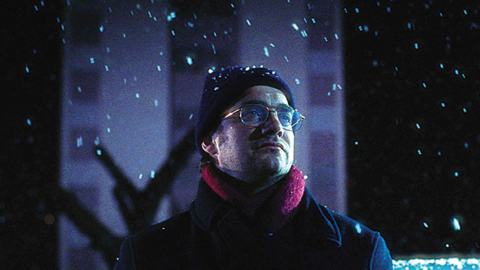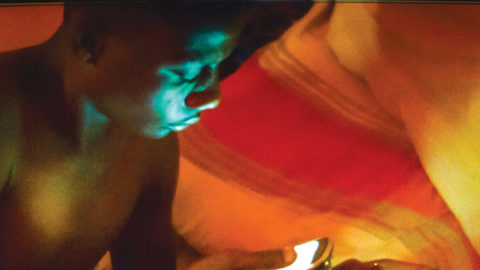
It’s no surprise that the search for identity is a recurrent cinematic motif in Argentina, a country that has been wracked by constant political and social crises over the past 15 years. Whether in dramatic comedies like those of Daniel Burman, offbeat fare like Martin Rejtman’s Silvia Prieto, or more personal films like Celina Murga’s Ana and the Others, the question “Who am I?” seems unavoidable.
Case in point: Ariel Rotter, director and co-writer of The Other (07), which won the Grand Jury prize at the 2007 Berlin Film Festival as well as the Best Actor award. Dealing with much the same questions as his debut film Just for Today (00), Rotter’s latest confirms the arrival of a singular sensibility.
The protagonist of The Other, Juan Desouza (embodied with amazing exactness by Julio Chávez), is a man in his forties whose partner is pregnant with their first child. His father is dying and Desouza can do little more than keep him company during his last days. The fear of becoming a father—and ceasing to be a son—seems to propel him into embarking on a trip to a small town outside of Buenos Aires, ostensibly to get some legal documents signed. Once this transaction is completed, however, he inexplicably remains in the town, seized with the desire to wander aimlessly and pretend he’s someone else—even if only for a few moments suspended in time.
As in other works of recent Argentine cinema, The Other exhibits a determination to avoid any psychological explanation for its protagonist’s actions. Desouza’s existential malaise never becomes explicit but instead manifests itself indirectly through the film’s claustrophobic sense of estrangement and desolation. In Just for Today, the main characters are a group of twenty-something Buenos Aires roommates unfulfilled by their work and personal lives and afflicted with a sense of purposelessness and discontent. The film’s portrayal of these familiar types is sharp, and Rotter’s handling of their converging and diverging individual stories is deft, but what’s most striking is that Just for Today provides no easy answers or magical solutions for the questions it raises. The existential dissatisfaction of its protagonists may be the film’s only real certainty.

The drama in The Other is grounded not in emphatic action or spectacle but in precise nuances, eloquent pauses, and long silences that speak volumes. Its dramatic elements are deliberately pared to a minimum, as if what takes place exists mostly in Desouza’s mind, in a deep interior place, removed from the push and pull of emotion and physical sensation. This distance from the emotional realm isn’t arbitrary: Rotter is clearly attempting to induce reflexive contemplation in the viewer, as opposed to sympathetic identification.
In this sense Julio Chávez’s performance is a revelation. Self-contained, austere, and laconic, Desouza is a fundamentally opaque, isolated character, an island unto himself. His gestures and manner are subtle, at times almost imperceptible, and his gaze hides more than it reveals. Seemingly impenetrable, Desouza shows no sign of any psychological transformation as the story unfolds. Nothing that happens while he plays out his idiosyncratic role-playing game seems to affect him in any way. It’s almost as if he isn’t even there.
Desouza’s hermeticism isn’t arbitrary: it’s the outgrowth of a narrative that, rather than being anchored in predetermined meanings, uses silence to allow for multiple interpretations. Desouza’s trip is punctuated by a series of small incidents—a man’s inexplicable death on the bus journey to the town, a fleeting, almost-but-not-quite-erotic encounter with a young woman, an old lady’s medical emergency (with Desouza stepping in, claiming to be a doctor). But none of these episodes seem to correlate with an interior journey—events seem to take place in a continuous present that resists classification. Oblique and indirect, Rotter’s narrative gambit is a risky one, offering no prospect of clear or reassuring conclusions.



